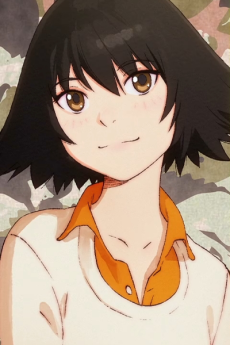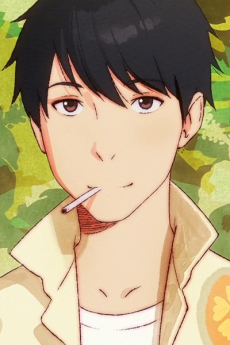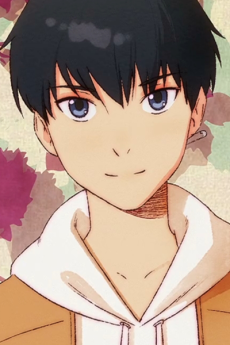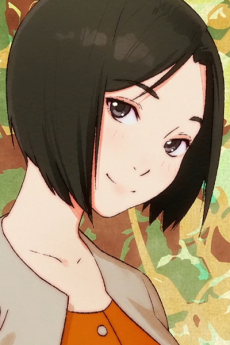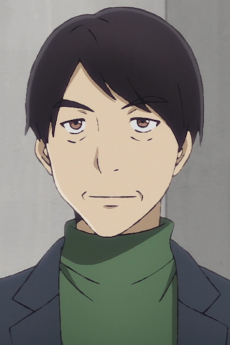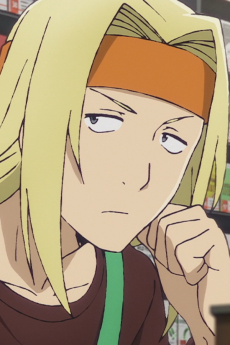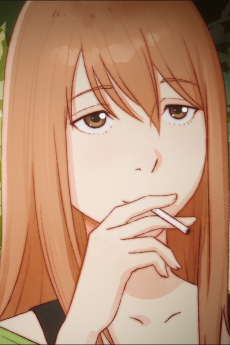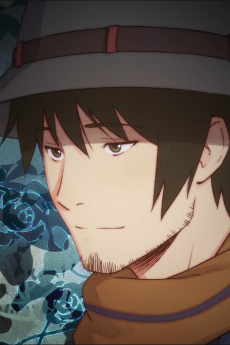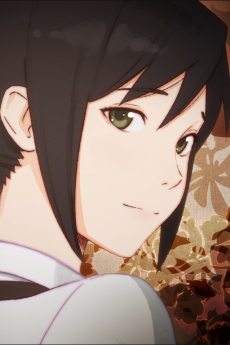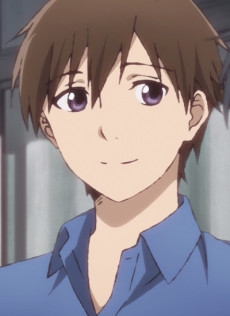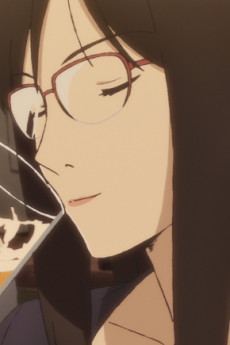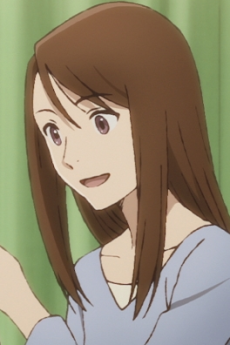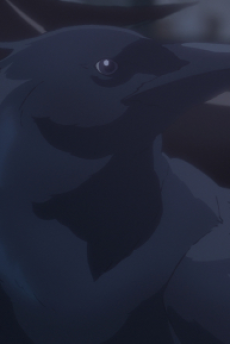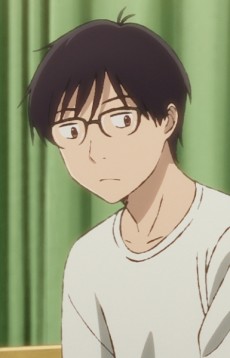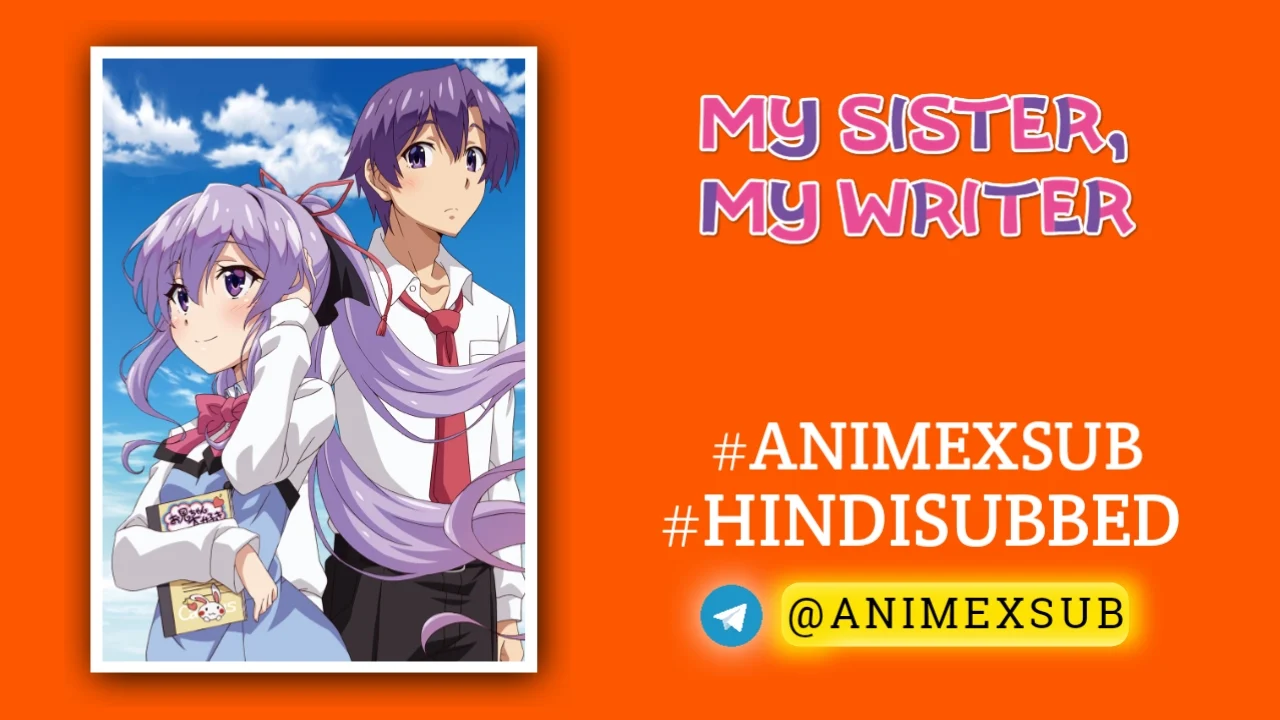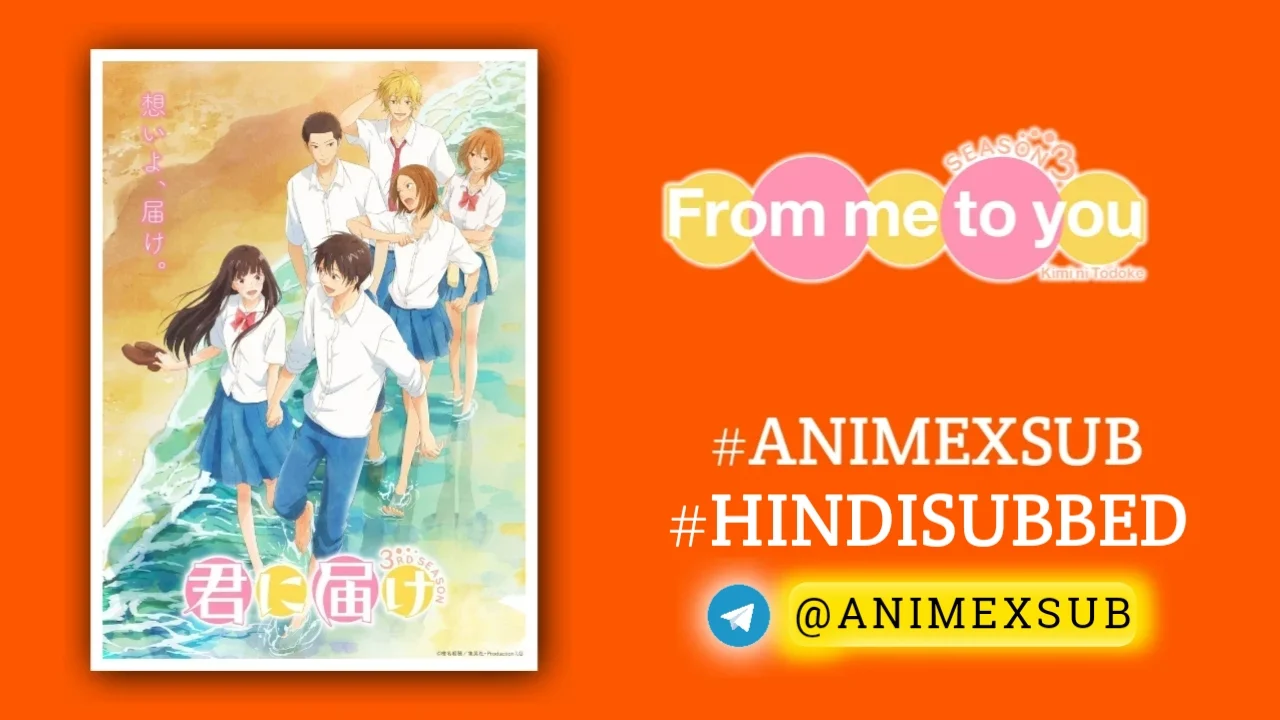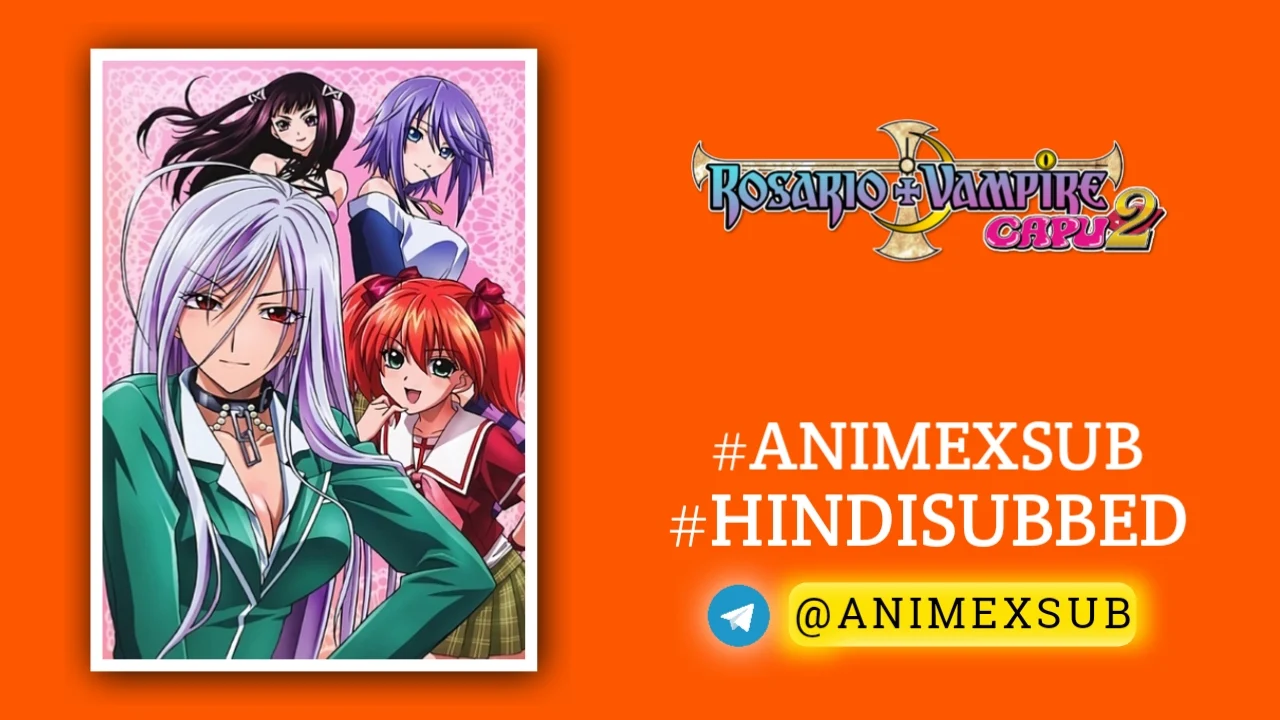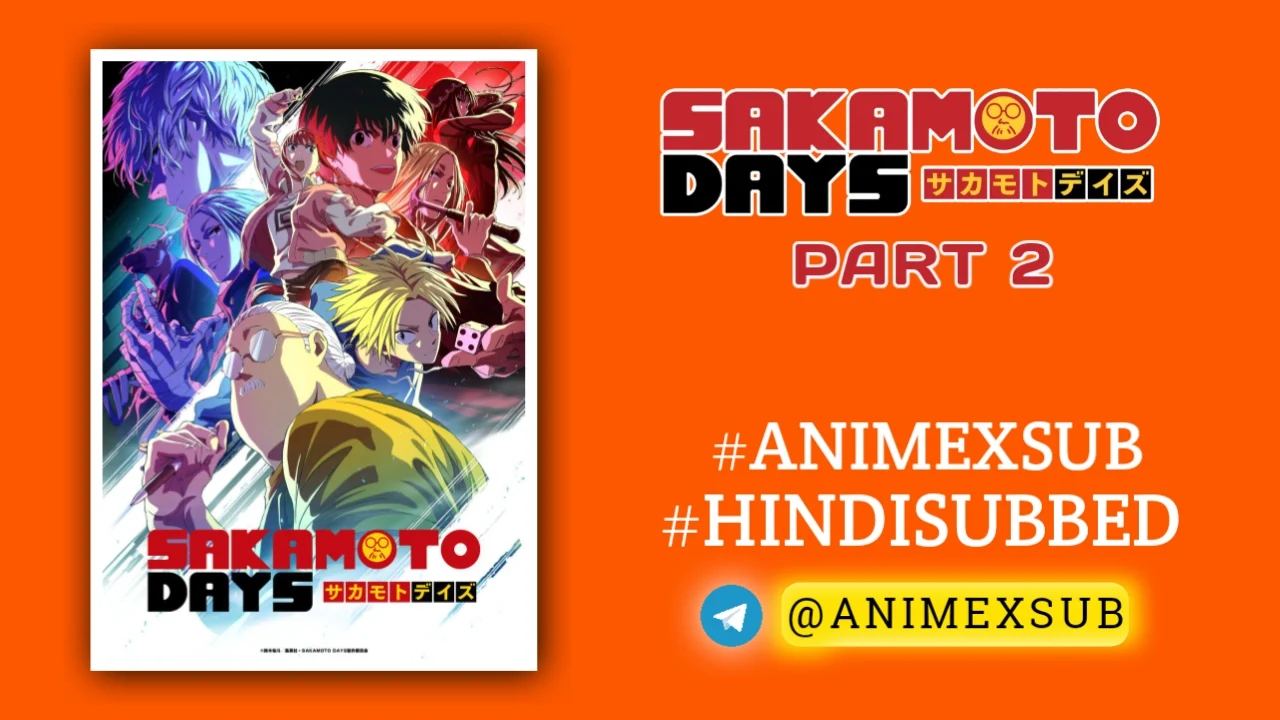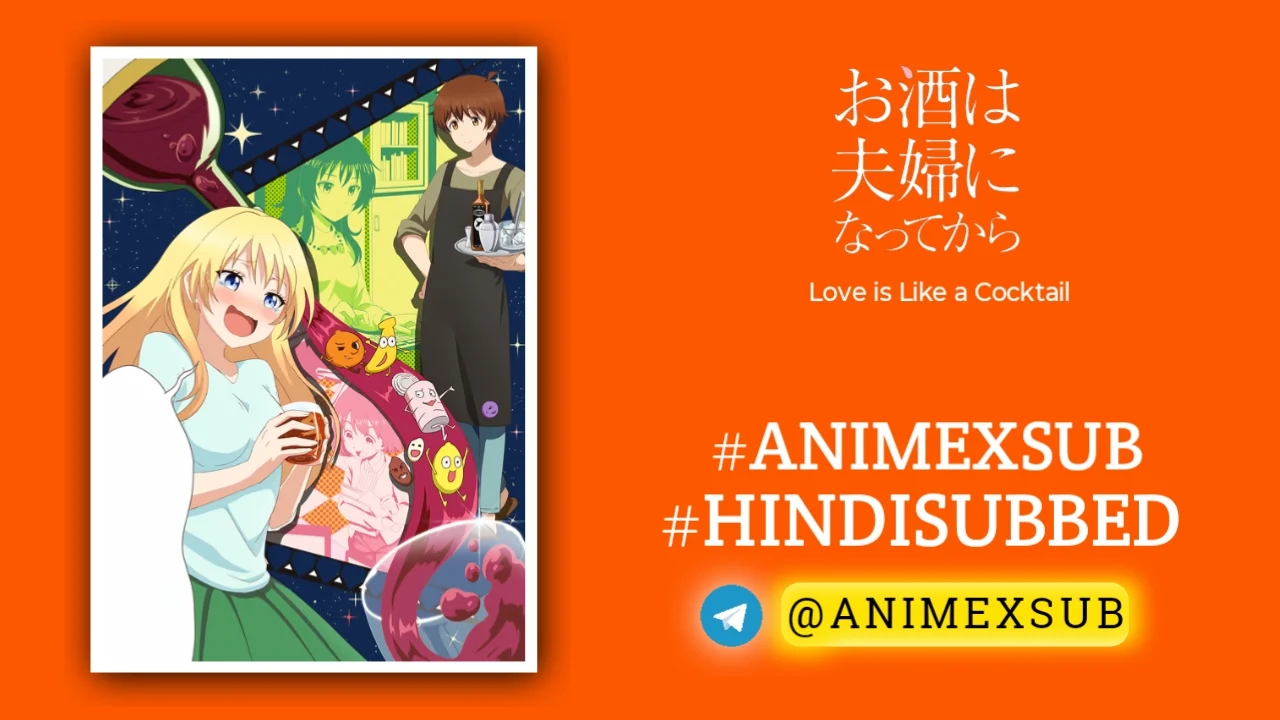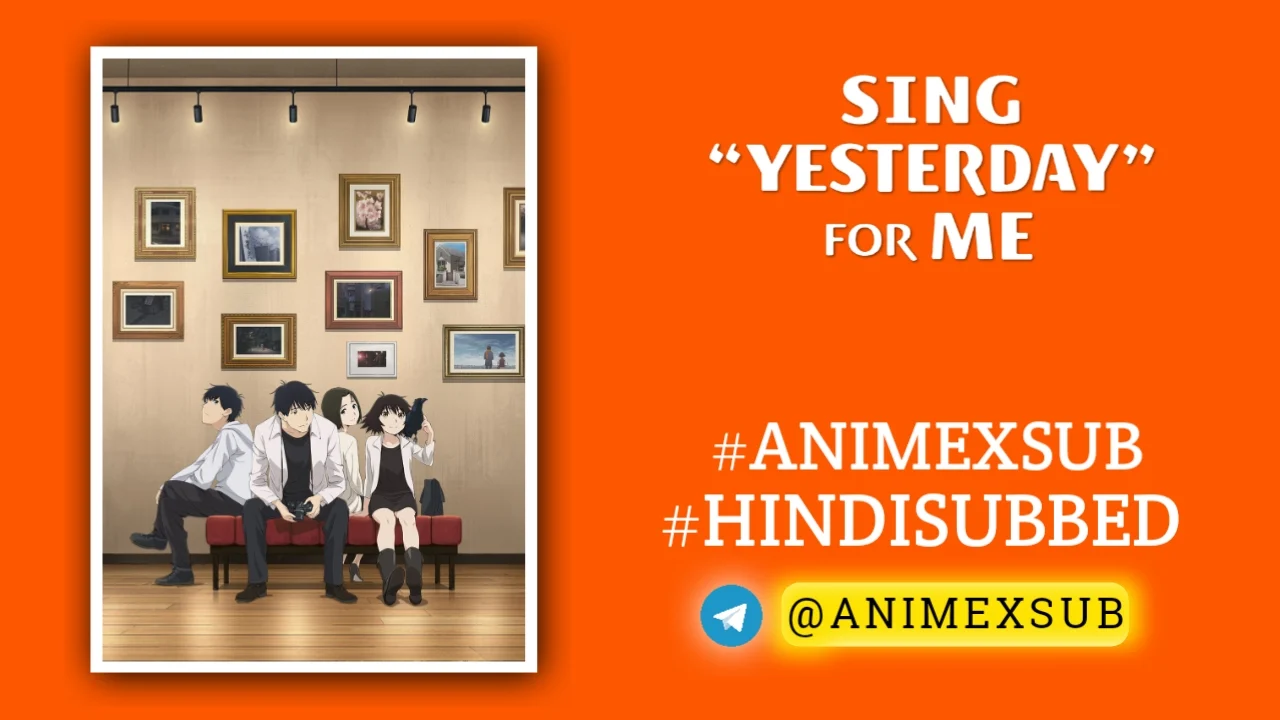
Sing “Yesterday” for Me Hindi Subbed [12/12] | Yesterday wo Utatte Hindi Sub!!
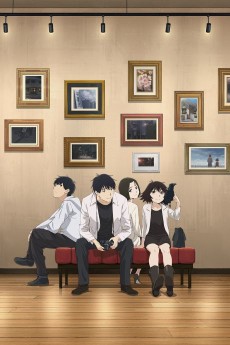
Yesterday wo Utatte
SING "YESTERDAY" FOR MESynopsis
A story of love and humanity, following four boys and girls trying to live their best lives through hardship and turmoil, in a small town on a private rail line just outside of Shinjuku. Minor misunderstandings lead to big complications, and their various feelings become entangled. A story of daily life lived 49% looking back, 51% looking forward. (Source: Crunchyroll)
Watch Trailer
Characters
“Sing ‘Yesterday’ for Me” Season 1: A Poignant, Unconventional Dive into Love and Loss That Redefines Anime Romance
Sing “Yesterday” for Me (Yahari no Kimi ga Suki) is a rare gem in the anime landscape, a series that dares to weave a tapestry of raw human emotion, existential musings, and understated beauty. Based on Kei Toume’s manga, the 2020 anime adaptation by Doga Kobo delivers a narrative that transcends typical romance tropes, offering a meditative exploration of youth, indecision, and the ache of unfulfilled dreams. With its 12-episode run and additional OVAs, Season 1 is a masterclass in storytelling that feels both deeply personal and universally relatable, making it a next-level experience that lingers long after the credits roll.
A Story That Dares to Be Different
At its core, Sing “Yesterday” for Me follows Rikuo Uozumi, a directionless college graduate working a dead-end convenience store job, grappling with the aimlessness of post-grad life. His quiet existence is disrupted by two women: Haru Nonaka, a vibrant, quirky high school dropout with a pet crow, and Shinako Morinome, his reserved former classmate and unrequited love. The series unfolds as a slow-burn character study, weaving their lives with those of secondary characters like Rou, Shinako’s student with a complicated past, into a delicate web of longing and regret.
Unlike many anime romances that lean on exaggerated drama or predictable love triangles, Sing “Yesterday” for Me embraces a grounded realism. The characters’ struggles—Rikuo’s lack of ambition, Shinako’s inability to move on from a past tragedy, Haru’s unreciprocated devotion—are portrayed with a rawness that feels almost documentary-like. The series doesn’t shy away from the messiness of human relationships, where feelings are rarely mutual, and closure is elusive. This authenticity is what sets it apart, offering a narrative that’s as painful as it is beautiful.
Visual and Auditory Brilliance
Doga Kobo’s animation elevates the storytelling to another level. The muted color palette, with its soft pastels and melancholic lighting, mirrors the characters’ emotional states, creating an atmosphere that feels like a rainy afternoon. Backgrounds are meticulously detailed, from the cluttered shelves of Rikuo’s convenience store to the quiet streets of Tokyo, grounding the viewer in a lived-in world. The character designs are subtle yet expressive, with small gestures—a hesitant glance, a nervous fidget—conveying volumes of unspoken emotion.
The soundtrack is equally powerful, blending indie rock and acoustic melodies that perfectly capture the early 2000s setting. The opening theme, “Kago no Naka no Bokura wa” by Hikaru Utada, is a haunting earworm that encapsulates the series’ themes of being trapped by one’s own choices. Sound design, from the rustle of leaves to the hum of a fluorescent light, adds an immersive layer, making every scene feel alive.
Why It’s Next-Level
What makes *Sing “Yesterday” for Me” Season 1 truly unique is its refusal to offer easy answers. The series challenges viewers to sit with discomfort, to accept that not every story ends with a neat resolution. Rikuo’s indecision, Shinako’s grief, and Haru’s unyielding optimism are portrayed with such nuance that every character feels like someone you might know. The show’s pacing, often criticized as slow, is deliberate, allowing viewers to marinate in the characters’ quiet moments of introspection.
The series also stands out for its thematic depth. It tackles questions rarely explored in anime: What does it mean to move forward when the past holds you back? How do you love someone who can’t love you the same way? These questions are woven into every interaction, making the show as thought-provoking as it is emotionally resonant. The inclusion of Haru’s pet crow, Kansuke, serves as a subtle metaphor for freedom and connection, adding a layer of symbolism that invites rewatching.
Critical Reception and Impact
Sing “Yesterday” for Me has garnered a passionate cult following, though it remains underappreciated compared to flashier anime. Fans on platforms like X praise its emotional authenticity, with one user calling it “a gut-punch of a show that feels like reading someone’s diary” (). Critics have lauded its character-driven narrative, with Anime News Network describing it as “a masterwork of understated storytelling” for its ability to make mundane moments profound. However, some viewers found the ending divisive, as it eschews traditional romance conclusions for a more open-ended reflection on growth—a choice that, while bold, may not satisfy those craving closure.
Why You Should Watch
If you’re tired of formulaic anime romances, Sing “Yesterday” for Me Season 1 is a must-watch. Its introspective narrative, stunning visuals, and haunting music create an experience that’s as informative as it is emotionally powerful. It’s a show that teaches you to embrace life’s uncertainties, to find beauty in the ordinary, and to accept that sometimes, the journey is the destination. Available on platforms like Crunchyroll, this series is a hidden masterpiece that demands to be discovered.
Final Verdict: 9/10
Sing “Yesterday” for Me Season 1 is a transformative anime that redefines what romance can be. It’s not just a show—it’s a mirror to our own hesitations and hopes, a reminder that even in our most ordinary moments, there’s a story worth telling. Dive in, and let it sing to you.
Support Our Anime Community!
Love watching the latest anime? Help us keep uploading new episodes by join telegram channel ❤️
Join Now!